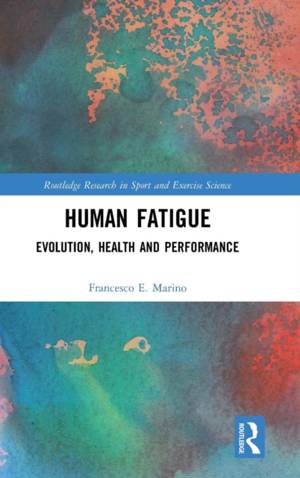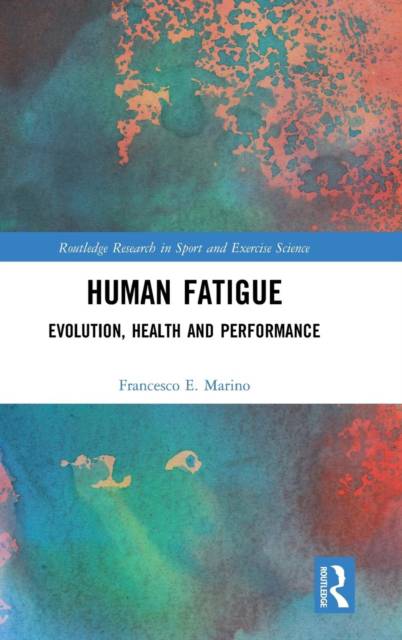
- Retrait gratuit dans votre magasin Club
- 7.000.000 titres dans notre catalogue
- Payer en toute sécurité
- Toujours un magasin près de chez vous
- Retrait gratuit dans votre magasin Club
- 7.000.0000 titres dans notre catalogue
- Payer en toute sécurité
- Toujours un magasin près de chez vous
Description
Fatigue is a condition spanning the breadth of human functioning in health and disease and is a central concern in sport and exercise. Even so we are yet to fully understand its causes. One reason for this lack of understanding is that we seldom consider fatigue from an evolutionary perspective - as an adaptation that provided reproductive success.
This ground-breaking book outlines the evidence that fatigue is a result of adaptations distinctive to humans. It argues that humans developed adaptations which led to enhanced fatigue resistance compared with other mammals and discusses the implications in the context of exercise, health and performance. Highly illustrated throughout, it covers topics such as defining and measuring fatigue, the emotional aspect of fatigue, how thermoregulation affects the human capacity to resist fatigue, and fatigue in disease.
Human Fatigue is essential reading for all exercise scientists as well as graduate and undergraduate students in the broad field of physiology and exercise physiology.
Spécifications
Parties prenantes
- Auteur(s) :
- Editeur:
Contenu
- Nombre de pages :
- 246
- Langue:
- Anglais
- Collection :
Caractéristiques
- EAN:
- 9781138939738
- Date de parution :
- 03-04-19
- Format:
- Livre relié
- Format numérique:
- Genaaid
- Dimensions :
- 156 mm x 234 mm
- Poids :
- 539 g

Les avis
Nous publions uniquement les avis qui respectent les conditions requises. Consultez nos conditions pour les avis.






